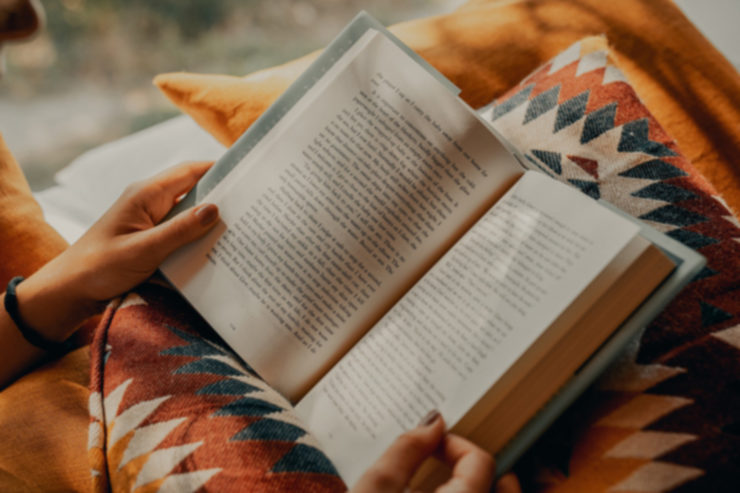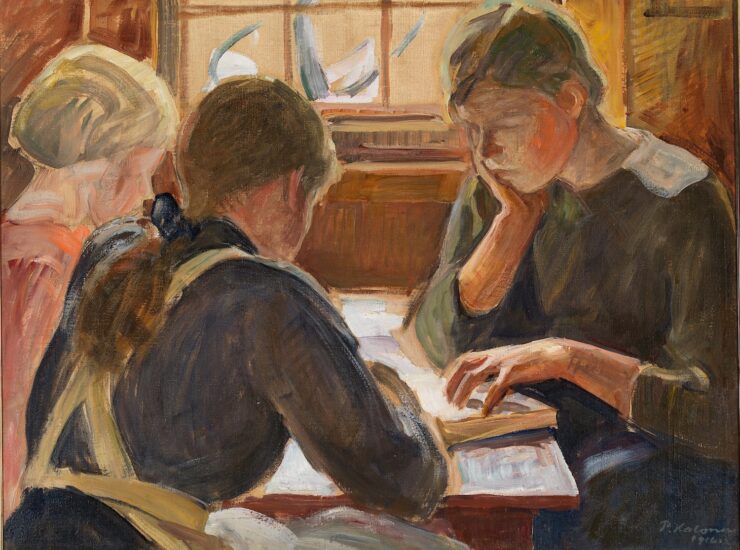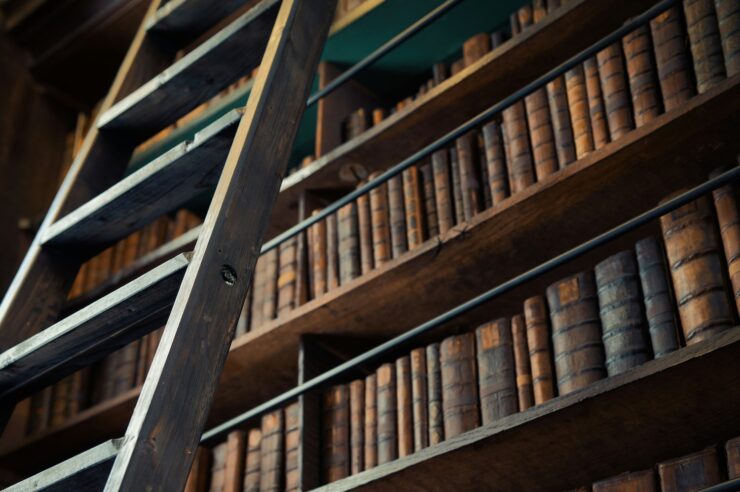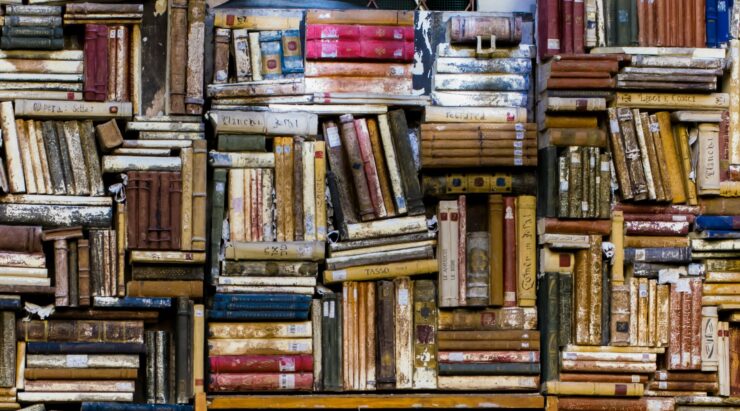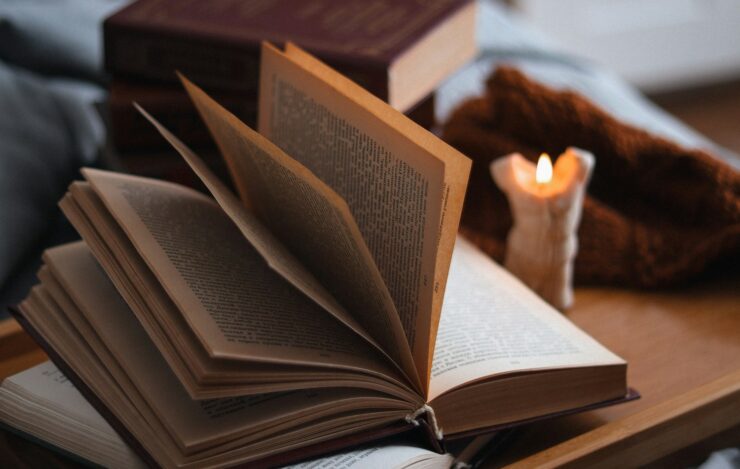It is the season for a lot of things, and one of them is people bemoaning the fact (though “fact” seems a bit like the wrong word here) that they didn’t read enough books this year. “Enough” in this situation tends to mean a specific goal, set roughly twelve months ago, back when we had no idea what a given year would hold.
There’s nothing wrong with reading goals, or numbers. Though I’m reluctant to admit it, I always think I’m going to read about a hundred books. Some years, I do. Most years, I don’t. And when I don’t, there is a little twinge of disappointment, no matter how I try to deny it. The failure of living up to a made-up goal! The loss of that big round satisfying number!
But why does it satisfy? It doesn’t mean anything. It doesn’t tell you anything about what your reading year actually held—whether you read books you never quite fell in love with, found a new all-time favorite, revisited the hits, learned something incredible.
How do you quantify a year in reading?
The truest answer is, I think, that you don’t. It’s like quantifying a year in living. No, strike the “like”: it is a year in living. It’s a year in reading wherever you read: at the bar, on the sofa, in bed, alone, with a friend or partner, in a park, at a coffee shop, on a train. It’s a year in thick hardcovers and slim paperbacks and ebooks and audiobooks and thousands of pages turned; maybe it’s a year in sentences written down, whole pages underlined, notes in margins that will delight or horrify you when you come back to them.
It’s a year of time, hopefully well spent.
I’ve finished 59 books so far this year. Currently I’m spending my time between Frances Hardinge’s upcoming Unraveller (always, always read Frances Hardinge) and Alan Watts’ Become What You Are, which I’m reading because I saw a passage from it on a friend’s Instagram and had to read the rest immediately. I will finish both of them before the year ends, and probably another book or two, too. Maybe a reread. Maybe The Golden Compass, in honor of how the adaptation made me sob last week.
I bailed on seven books. Two were rereads that I decided not to finish. At least one I will definitely go back to. I keep track of what I didn’t finish because I do go back; it took me a couple of years to really commit to the fifth Expanse book, which became one of my favorites. The time isn’t always right. Be kind to yourself. Be kind to the books. Unless you’re really not enjoying them, in which case, hey, put them in a free box and never think about them again.
What that read-books number tells you is that I read, on average, about a book a week. But this is entirely untrue. In one month I read a metric ton of books and a little bit of many others. In one month I finished only two books. One September afternoon, I sat at the island in my kitchen and read all of Tamara Shopsin’s idiosyncratic and lovely LaserWriter II. On my list of books read, it looks exactly the same as Sunyi Dean’s The Book Eaters, with which I spent a languid week, or one nonfiction book that I read in grumpy fits and starts, pausing for my partner to catch up so that we could complain about it in tandem.
Buy the Book
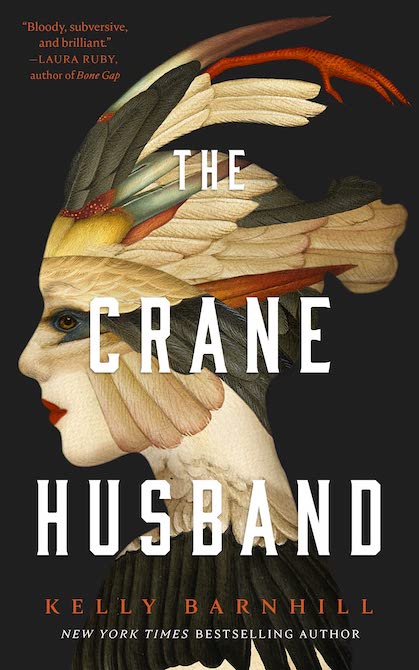

The Crane Husband
There is satisfaction in lists and numbers; there is satisfaction—so much of it, truly—in the moment when you close a book, set aside whatever you’re using as a bookmark, and look over to the bookshelf to see if it will even fit where it’s supposed to go. I love this moment. I love shelving books, seeing the weird coincidences of the alphabet that make for unlikely shelfmates. I have absolutely fallen prey to the desire to rush the ending so that I can put a book on a shelf. It’s a tiny moment of closure and wrapping up and joyful completion, all of which can sometimes be hard to come by. It’s also a little ritual in a world that can have far too few such things.
What did you read, and what did it give you? What if we all wrote Christmas letters, but for books? Dear friends, in January I reread Rachel Hartman’s Tess of the Road and it turns out I still want to shove it in the hands of anyone who displays even the slightest amount of interest in books about dragons, on-foot road trips, and stubborn teenagers learning to tell new stories about themselves. Mine would be very long, especially once I got into Elaine Castillo’s How to Read Now and Geoff Dyer’s The Last Days of Roger Federer, two nonfiction books which are still soaking into my mind. I followed the Dyer with Ruth Ozeki’s The Book of Form and Emptiness, on which I am also still stewing, and Kristi Coulter’s Nothing Good Can Come From This, which falls into one of my favorite subcategories: Women in the Pacific Northwest living lives that are wildly different from mine, but with intriguing overlaps. (If I wrote a memoir there would definitely be a mention of Paul Westerberg in there somewhere.)
I saved Nona the Ninth until I needed her (though maybe it was Camilla Hect I really needed, unexpectedly). I read my first solo Terry Pratchett book (please, don’t throw things, I’m sorry, I was an Adams kid; Discworld missed me entirely). I read about reading and I read about time travel in New York City and I absolutely marveled at how Gabrielle Zevin made twentysomething video game designers in the 90s so widely relatable. I read three books in a row about missing or preparing to miss one’s parents. I cried in at least half a dozen books. I felt a very strong dislike for only three of them.
I finally read The Goblin Emperor, like everyone had been telling me to for literal years, and it was everything I wanted it to be—in part because I read it at the right time.
What does this all add up to? Not just a list, a carefully ordered spreadsheet, a new set of things to recommend on even the slightest provocation. (Have you read The Women Could Fly yet? Well, why not?) But looking at that list and thinking about it is a whole different experience than tallying up a number and deciding whether it was enough. I feel like I just read The Atlas Six; how was that all the way back in March? Why do some books feel like spring when I read them in the height of summer? How is it that the city layout from Age of Ash is still etched into my mind?
What do you keep, and what falls away? What do you read most of (unsurprisingly, for me it’s SFF, by far) and what stays in your mind most vividly? What did it tell you about who you are—as a person, and as a reader? What challenged you and what was like a soft cushion for your tired brain to land in? What did the things you read tell you about what you’re going to read—and who you’re going to be—in 2023?
Molly Templeton lives and writes in Oregon, and spends as much time as possible in the woods. Sometimes she talks about books on Twitter.










